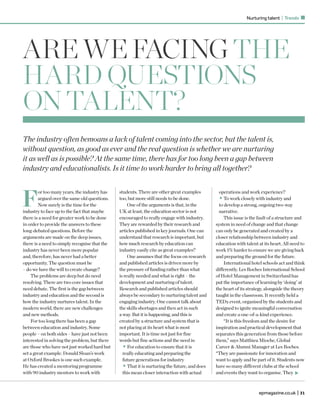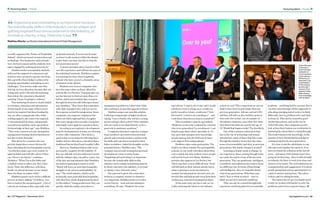The document discusses issues around nurturing talent in the hospitality industry. It argues that while the talent and skills of new entrants are good, the industry may not be doing enough to develop and support this talent. Specifically, it points to two key issues: 1) the gap between hospitality education and industry which limits opportunities for real-world experience, and 2) how the industry develops and mentors new talent once they enter the workforce. It calls for greater collaboration between education and industry to better prepare students for careers and allow them to gain experience through programs like internships and mentorships.

